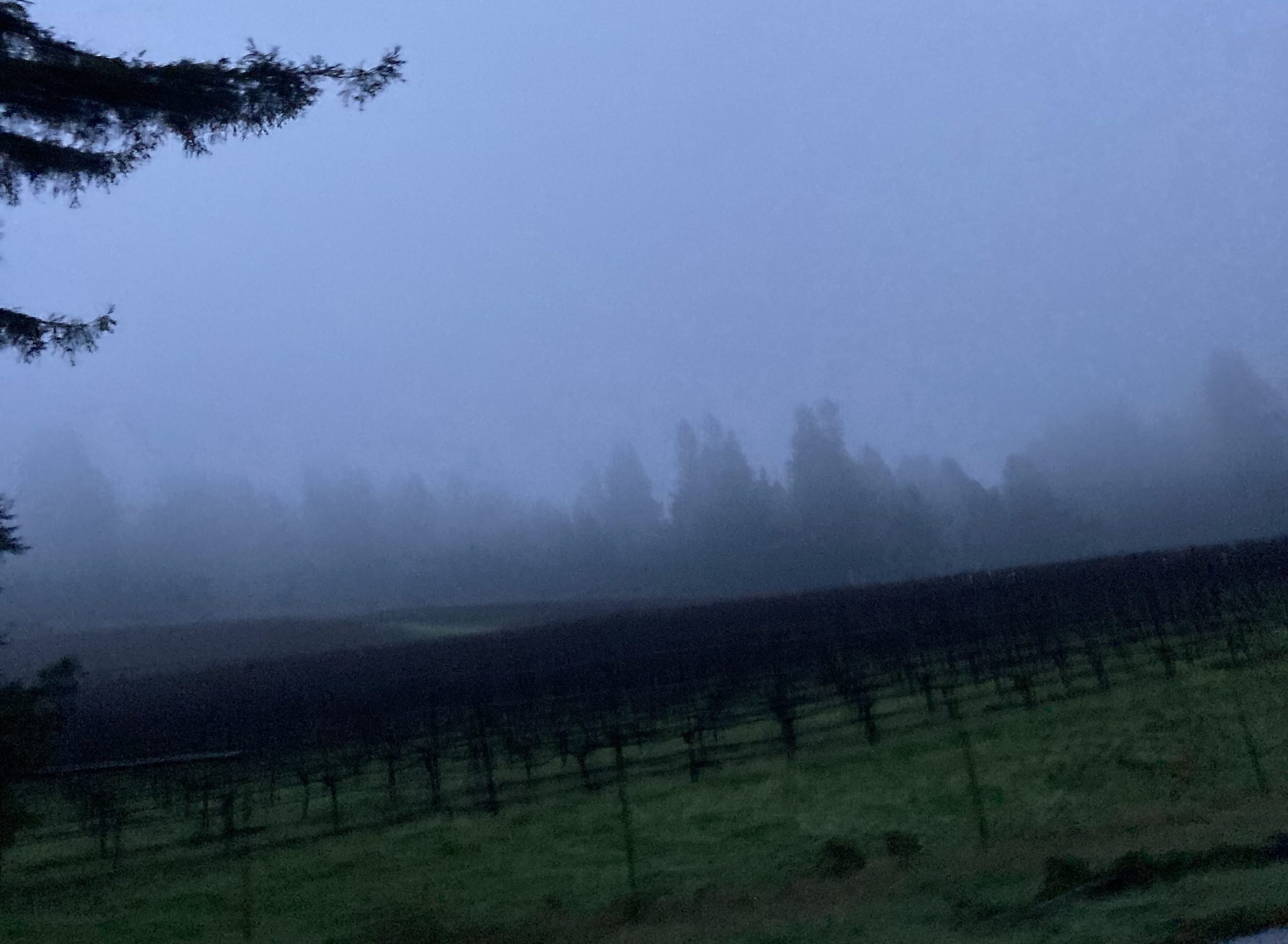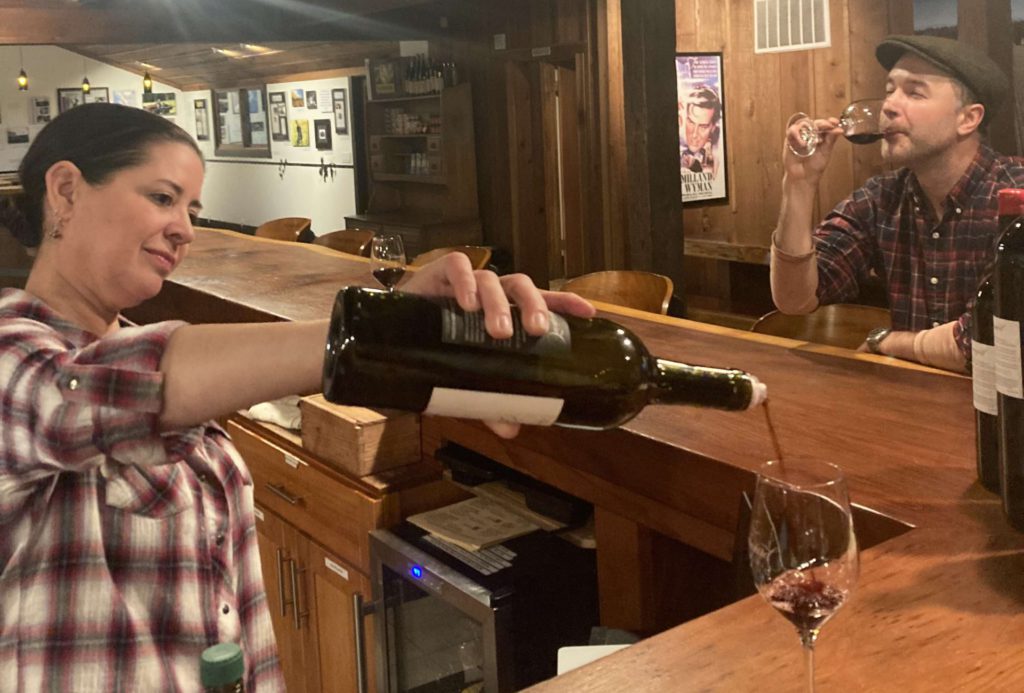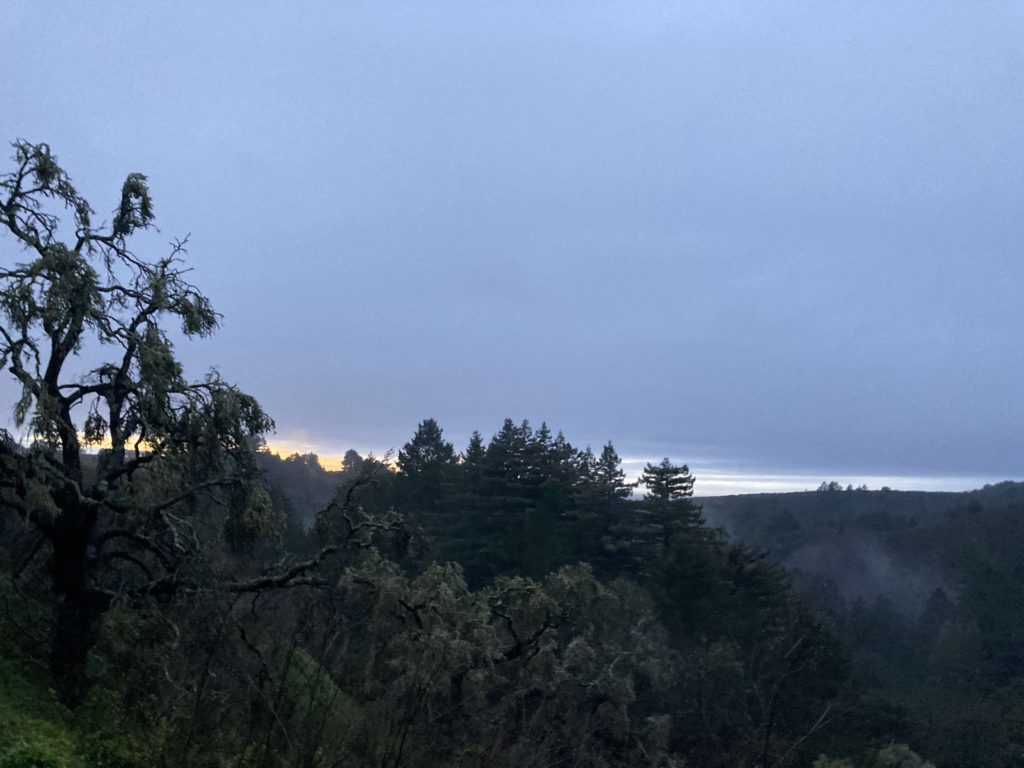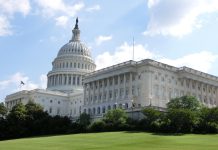As tariffs against goods from Canada, Mexico and China were announced Sunday and Republicans hit national political television shows to slam our neighbor to the north, local winemakers braced for impact.
But John Clerides, the owner of Marquis Wine Cellars—a Vancouver importer of Californian wines (such as from Saratoga’s Mount Eden Vineyards)—says he’s not going to let edicts from Washington ruin long-standing friendships.
“We’ve never had—at least in my lifetime—a trade war like this,” he said, but added, “Our relationships are not going to be compromised by a bully in the playground.”
As President Donald Trump signed off on a sweeping 25% levy on Canadian goods, premiers in British Columbia, Ontario, Quebec and Nova Scotia responded with varying degrees of retaliation, particularly on alcoholic beverages.
Doug Ford, Ontario’s leader, directed the LCBO, the government-run monopoly, to remove all American liquor from its shelves by Tuesday, the day the tariffs were scheduled to go into effect. British Columbia said it would stop selling American liquor made in red states, though it was initially unclear how widely this would apply.
The move comes as Cupertino-based Ridge Vineyards has been gearing up to head to the Vancouver International Wine Festival, scheduled for Feb. 22 to March 2—which is billed as one of the country’s top industry showcases.
Ridge has been at the forefront of spreading awareness of Greater Silicon Valley’s winegrowing prowess.
But now, with sports fans booing the American national anthem at basketball and hockey games, observers are already predicting Canadian consumers could soon sour on American grapes.
That would be a shame, says Jeremie Garcia, founder of Quebec-based Picole Import.
He’s become a huge fan of the Santa Cruz Mountains wines and makes the case for these products to that province’s relevant Crown corporation—the Société des alcools du Québec (SAQ), the only wholesaler.
“I decided to niche myself in that region specifically,” he said. “Since then—I don’t want to say obsessed…”
It’s the agricultural scene, mixed with the surf culture, that he’s drawn to; plus, he adds, the wines have this very unique character, thanks to the landscape that births them.
“You get the height of the mountain that brings in the cool air, the sun exposure—while not necessarily blocking the air from the Pacific,” he said, comparing the region to more-established Napa and Sonoma. “It’s a more holistic approach to wine-making, and a little less ‘business.’”
It’d been a hectic morning, as he learned the SAQ was cutting off US producers.
“They’re going to block all the imports, and they won’t be selling them on their shelves either,” he said in a Sunday phone interview. “It hurts people like talented winemakers and representatives such as myself who don’t really have anything to do with the trade war.”
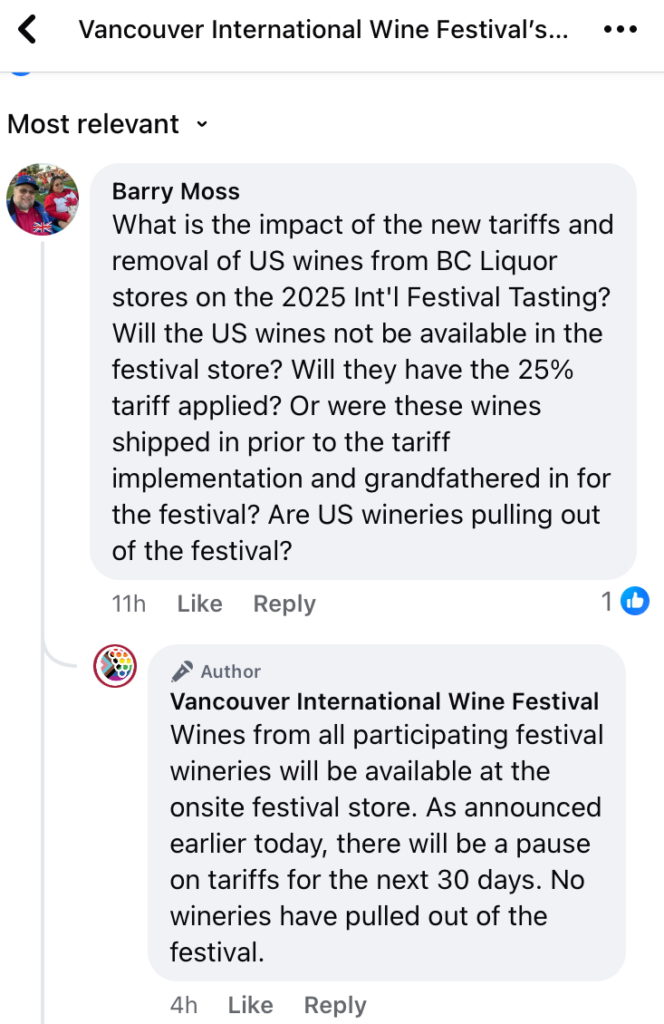
In addition to Saratoga’s Mount Eden, he represents other Californian exporters, such as Margins Wine.
The Megan Bell-founded company gets its grapes from Carmel Valley, the Santa Cruz Mountains and the Santa Clara Valley, among other sites.
Luckily, Garcia said, he just received a shipment from America, and expected to be allowed to sell-through the inventory—including at the high-end Montreal restaurant he manages called Tuck Shop.
The Mount Eden 2019 Cabernet Sauvignon goes perfectly with their steak and fries with chimichurri dish, he boasts.
“We make a mean one,” he said.
Their wine list also features a sauvignon blanc from Healdsburg-based Cormorant Cellars (which sources grapes from the Santa Cruz Mountains), as well as a Verdejo from Margins.
“The stock is in, but the trade war has started,” he said, adding he’s concerned American bottles could become tarnished by stigma.
Garcia emphasizes he’s no expert on trade policy, but says, even if the point is to pressure Ottawa into cracking down on fentanyl, he’s not a fan of how Trump went about it.
“It could have been a more collaborative process,” he said.
American journalists have pushed back on the claim that Canada is a big source of the synthetic opioid.
But, over in BC, Clerides says his law enforcement contacts have told him it’s becoming a real issue.
“This has got something to do with wine, but I can tell you this has more to do with the fentanyl production that comes out of British Columbia,” he said. “It’s a significant problem here.”
Only time will tell what Trump’s long game is, he adds.
“He’s using wine as the leverage,” Clerides said. “In the meantime, it’s going to affect a lot of small businesses. Especially the importers.”
He can’t help but think of the headaches to come. For example, Americans on vacation could be in for a rude awakening if US wine disappears from menus.
“They like to drink their own product,” he said. “The last thing you want to do is get in an argument with an American customer.”
On the other hand, Marty Mathis, the president and winegrower at Kathryn Kennedy Winery in Saratoga, notes the reason the Canadian wine industry was able to develop back in the 1970s was because of protectionism.
“They had the ability to compete on a different playing field,” he said, noting their company doesn’t sell north of the border. “They were able to grow.”

ADDITIONAL READING >>> Check out Laura Ness’s report about the 2024 Santa Cruz Mountains wine harvest here.<<<<
Meanwhile, their operation would be more affected by the 10% tariff on China, as that’s where they get their bottles from (it’s cheaper)—though he says it would take a while for this to make a dent in their bottom line.
And if Trump goes further and puts tariffs on European wines (as happened temporarily the last time he was in office), they’d see a bigger boost, Mathis adds—while stressing he’s not advocating for tariffs.
“Then, I would be a beneficiary of protectionism,” he said. “Because then my wine would be less expensive (relative to imports).”
But even if that happened, tariffs wouldn’t necessarily shift things that much—at least not right away, he adds.
“It’s hard for restaurants to change on a dime,” he said, noting image and wine list revamps take time.
Felton’s Hallcrest Vineyards once exported to Canada, but hasn’t for years.
“It’ll be interesting to see how it affects us all,” said owner Lorraine Schumacher amid Sunday’s rain at their tasting room, adding, “—the backlash.”
Alex Frenette, a 38-year-old Bonny Doon resident who’s originally from Moncton, New Brunswick, says he isn’t too worried. He works as a wine educator at Beauregard Vineyards, which doesn’t ship to Canada.
“We grow the grapes and we make the wine, so that makes us a little unique,” he said, adding the Californian product is so good, Canadian sellers could always just keep the bottles in their cellars until the newfound anti-American sentiment fades. “When this blows over, the value of the wine will hold.”
Meanwhile, his coworker Leia Regan, 47, was a little less blasé about the whole thing.
That’s because she just got back from the California Association of Winegrape Growers‘ Unified Wine & Grape Symposium, in Sacramento. (“I toured a lot of tractors,” she joked.)
One panel discussion, where experts discussed labor and trade, stood out to her in particular.
“The mood was, very concerned,” she reflected, “—like, we’re coming into something difficult.”
Since many Californian growers sell grapes to Canadian producers, looming tariffs were top of mind, Regan added.
But from Frenette’s point of view, Santa Cruz Mountains winemakers shouldn’t fret too much.
“It’s going to be a big kick,” he said, as they closed up shop for the weekend, but added, “We still live in one of the best winemaking areas in the world.”
At the 11th hour, Trump reversed course and said he was putting the Canadian tariffs on hold.
Fielding a question on its Facebook page late Monday, the Vancouver International Wine Festival confirmed neither Ridge, nor any of the other American wineries, had pulled out of the event.
“Wines from all participating festival wineries will be available at the onsite festival store,” the official VIWF account responded. “As announced earlier today, there will be a pause on tariffs for the next 30 days.”


